Clever Fruit and Vegetable Hacks For A Healthier Life
Fruits and vegetables are very particular. They thrive in specific environments and can quickly become moldy, discolored, or wilted if not properly cared for. Learning how to properly store your produce is something everyone needs to learn. As it turns out, leaving them in their grocery store packaging is not always the most effective solution.
In the pages that follow, you will discover valuable pointers to help you get the most out of your fresh produce. These fruit and vegetable hacks include everything from how to make your produce last longer, how to cut and peel different fruits, how to tell if produce is fresh or overripe, and many other top tips every adult should know! Let’s dive in!
Storing Asparagus
When asparagus spears are stored in their grocery store packaging, the tops quickly wilt or become tough. To save asparagus for a longer period of time, fill a large glass halfway with cold water. Remove approximately an inch from the base of each spear and set it aside.
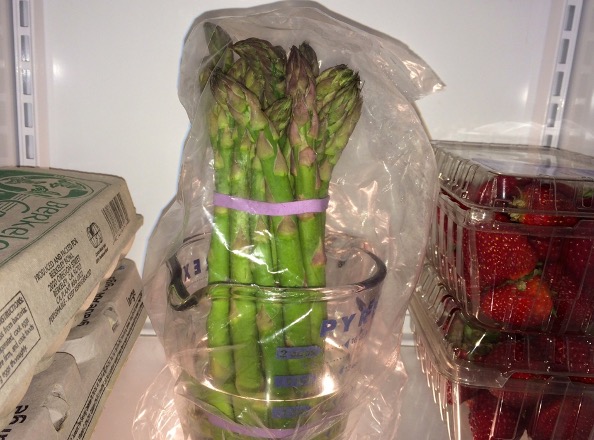
Image credit: Christine Gallary
Place the asparagus in the glass upright, making sure that all of the stem ends are submerged in water. Cover them with a plastic bag, and you can refrigerate the spears like this for approximately one week. They will stay fresh and crispy the whole time.
Pull The Skin Off The Pomegranate
Here’s a quick instruction on how to open a pomegranate. You’ll only need a sharp knife and some chilled water. Using a knife, score the skin of the pomegranate along the ridges. Take care not to cut yourself or the pomegranate seeds. Finally, break your pomegranate into pieces while holding it over the bowl.
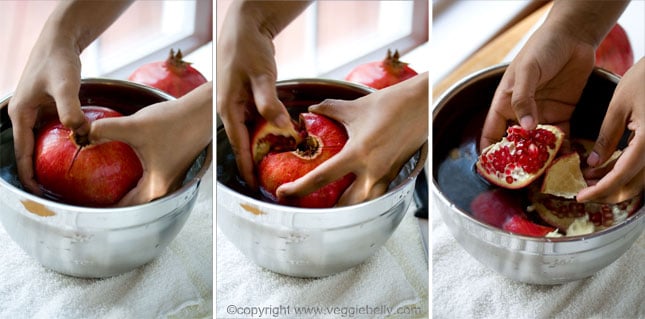
VeggieBelly.com
To remove the seeds from the pomegranate pieces, submerge them in water. Pomegranate juice will not stain your clothes or anything else around you if you have enough water on hand.
Saving Your Celery
It may come as a surprise to hear that celery keeps for extended periods of time when tightly wrapped in aluminum foil. The disadvantage is that you cannot observe the celery’s condition unless you unwrap it and check it from time to time. But this is only mildly inconvenient.
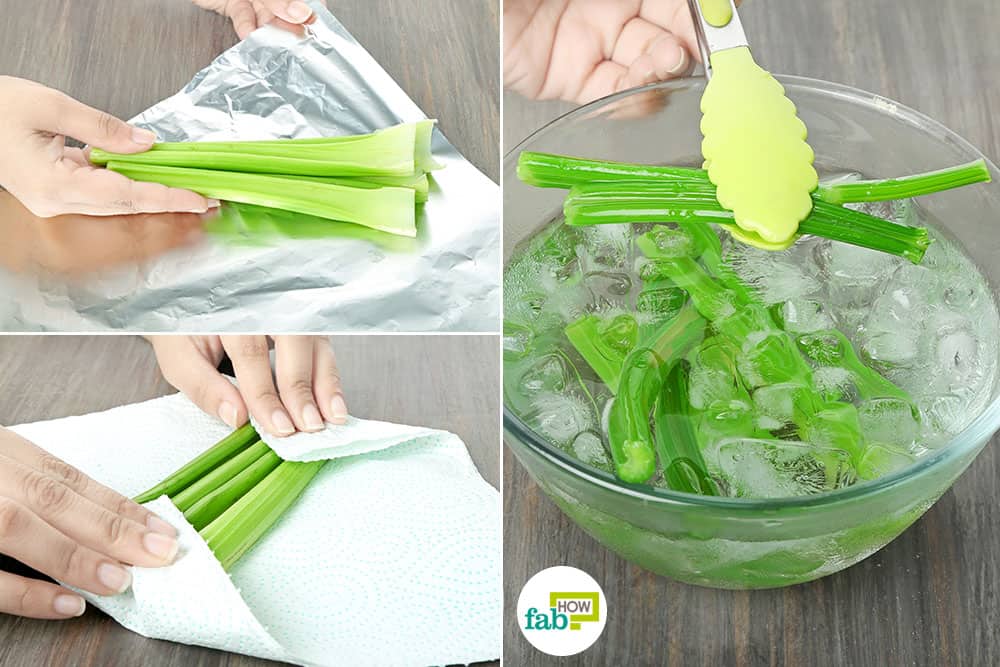
Fabhow.com
Because celery is composed primarily of water, it makes sense to preserve it in water. Cut the celery into shorter lengths and place them in a container with enough water to cover them. Then place the container in the refrigerator.
Peeling Peaches
Simply chop a little piece off the top of the fruit and blanch it for at least 10 minutes in boiling water to make it as easy as possible to prepare. At this point in the process, place the peaches in a cold bath with ice cubes and water to stop the cooking process.
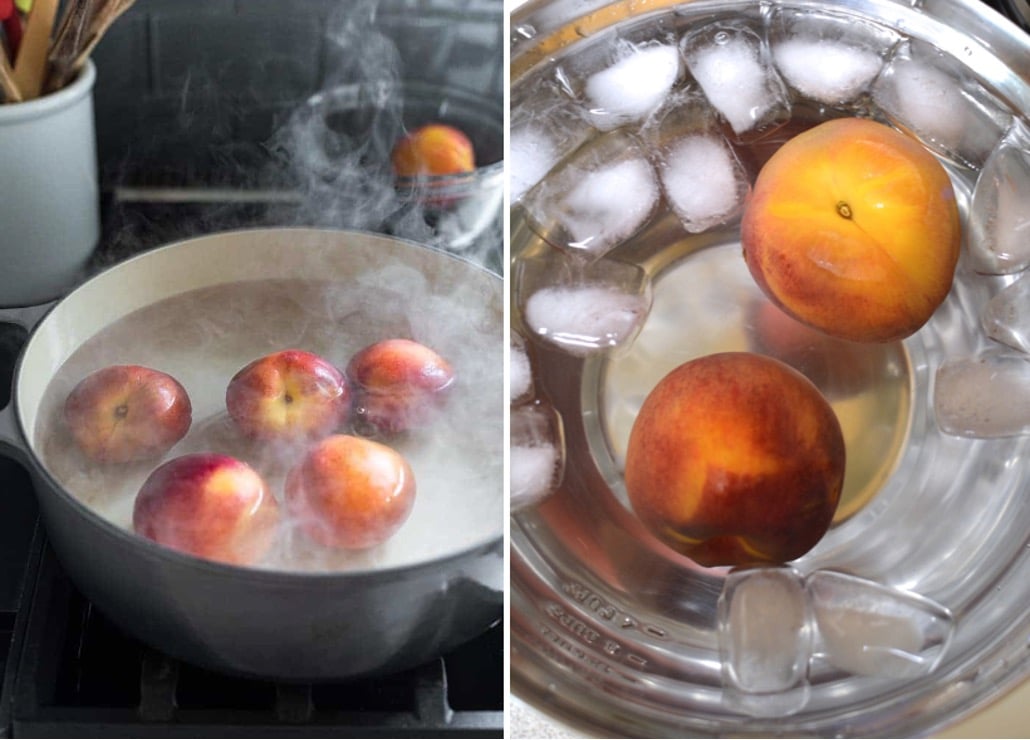
SprinkledWithJules
Once the plump peaches have been retrieved from the refrigerator, try peeling them. This technique makes for the easiest peeling process imaginable. You will be surprised to see how easily the skin slides off the fruit.
Make Lettuce Last
Wilted lettuce is the worst. In a single moment, all of your good intentions to eat salad are dashed. However, we have some good news for you. Lettuce can be kept for longer periods of time – all you have to do is store it correctly.
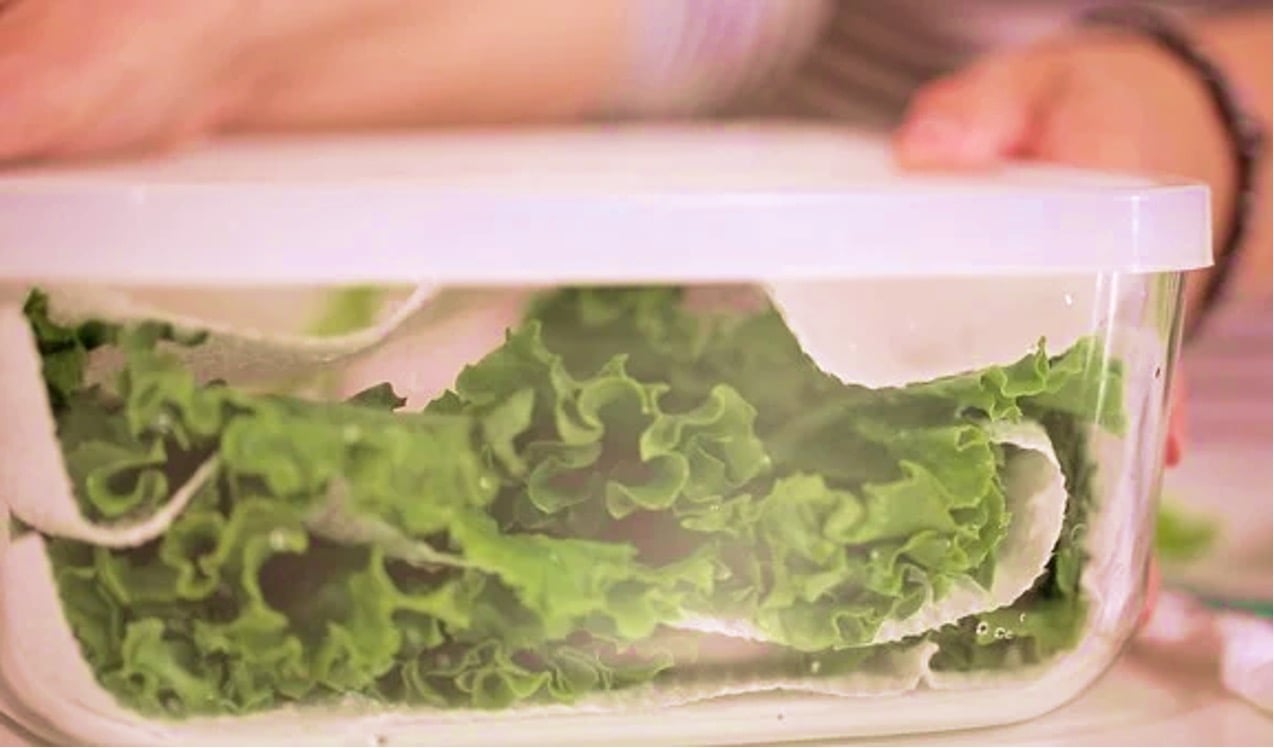
Muybuenocookbook.com
When you arrive home from the supermarket, simply wipe and dry the lettuce before wrapping it in paper towels (bottom, sides, and top) and storing it in an airtight container or plastic bag. The paper towels will last two to three weeks and will absorb moisture, leaving the lettuce crisp and fresh the whole time.
Microwave Your Pumpkin
Removing the rough skin from a pumpkin can be time-consuming and challenging. It doesn’t have to be, though. We’ve got a simple kitchen hack for you that will make your life a lot easier. Make use of the microwave!
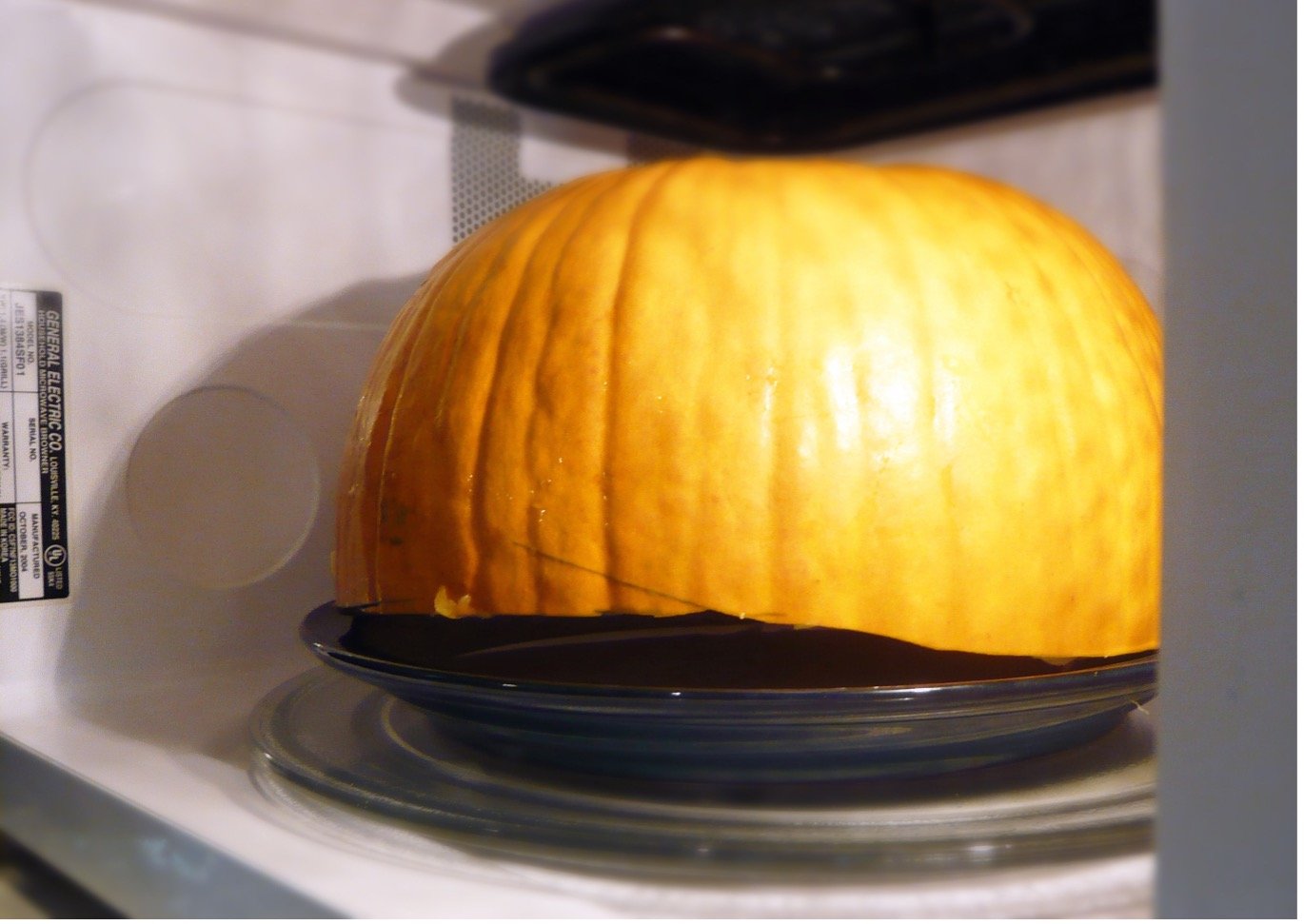
Image credit: Anne Wolfe Postic
To begin, poke the pumpkin with the tines of a fork all over. After that, microwave it for three minutes in a microwave-safe bowl. Peeling your pumpkin should now be easy as pie. Remove the skin with a knife or a peeler. The skin will fall off in big sections, making peeling considerably easier.
The Ginger Spoon Trick
It turns out that a knife isn’t the best tool for peeling ginger. Instead, take a spoon for a spin! The ginger skin will be removed, but no flesh will be taken with it. This method is, of course, a little messier, but it is the quickest and least wasteful way to peel ginger root.
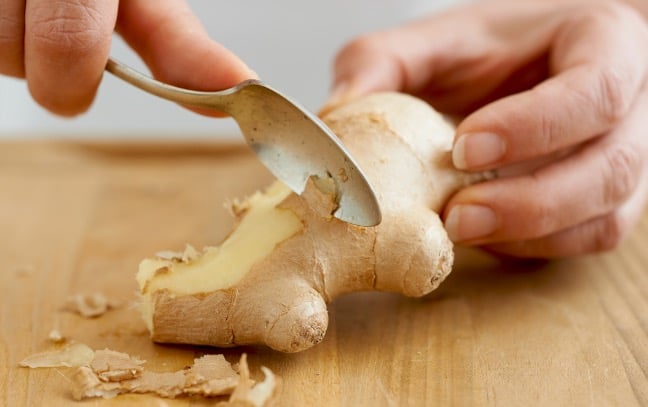
CREDIT: ANDY LYONS
To generate the most pressure on the tip of the spoon, hold the ginger close to the base of the bowl. Scrape the outer layer of skin off by running the concave side of the tip down the knob.
Prevent Brown Apples
The most important thing you can do to keep an apple from browning is to limit its exposure to air. Submerging your apple slices in water is the simplest way to do this. Place a clean paper towel on top of the slices, as they will otherwise float to the surface of the water.
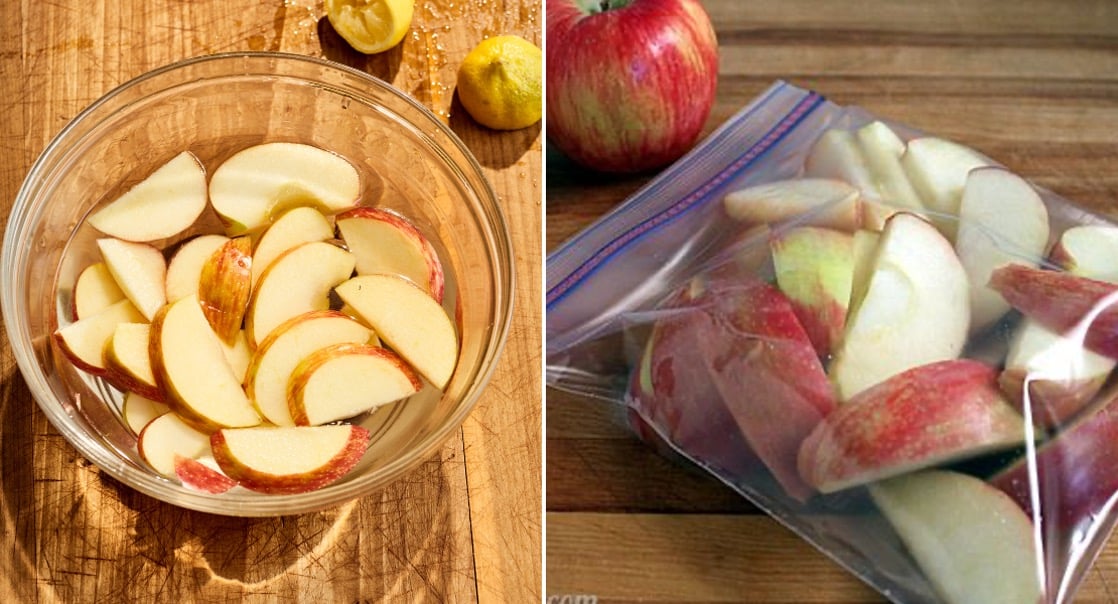
Snapguide.com
When the paper towel is wet, it will push the apples beneath the surface of the water. Another method is to place the apple slices in zip-lock bags and push the air out.
Ripen Your Avocados Faster
The paper bag technique is a tried-and-true method for ripening avocados. Place the fruit in a brown paper bag and secure it loosely. Keep the bag in a dry, dark spot away from direct sunshine, and check it every day until the desired ripeness has been achieved.
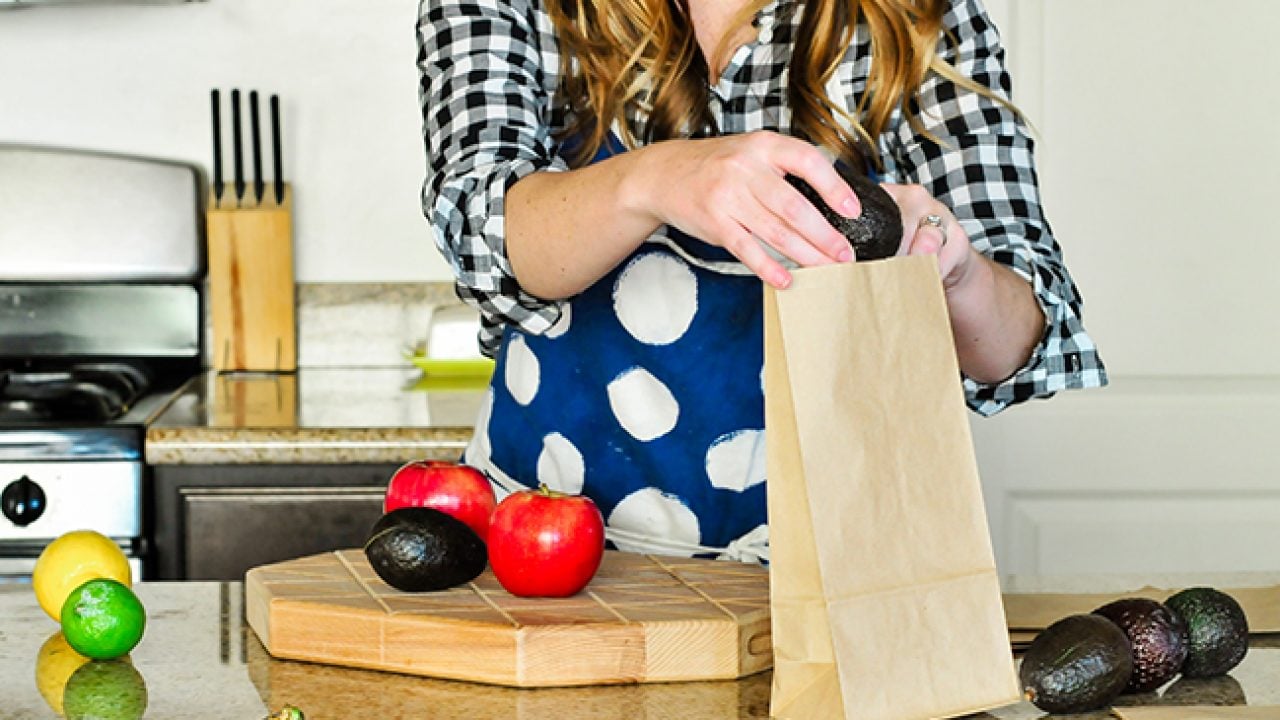
Momtastic.com
What is the mechanism behind it? Ethylene gas is produced by fruit, which aids in ripening. The gas is trapped in the paper bag, which speeds up the process. Some individuals poke holes in the sack to allow oxygen to flow through. This will speed things up even more.
The Most Efficient Orange Peeling Process
Peeling an orange quickly requires only three simple slashes. Begin by removing the fruit’s top and bottom sections. Next, slice the orange lengthwise until the knife reaches the middle. You should be able to peel it with your hands from there. Remove the orange segments from the peel by unfurling the fruit.
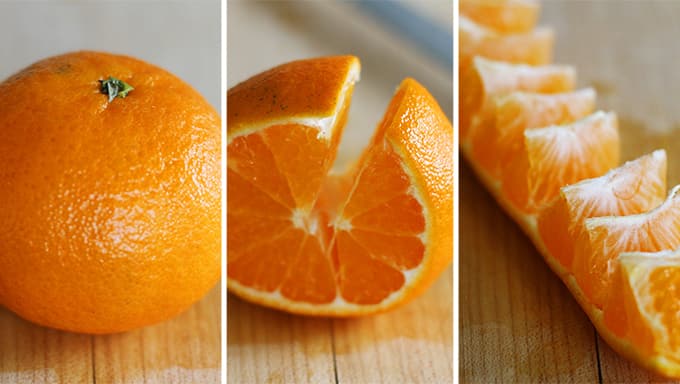
Tablespoon.com
This procedure is not only faster than slicing every last part of the peel with a knife, but it is also more cost-effective. You don’t have to worry about any fruit on the rind getting thrown away if you free the segments by hand.
The Ripening of Blueberries
Generally speaking, ripe blueberries are large and deep blue in color, with a light dusting of silver on top. Unripe berries will be firm and tinged with red or pink when they are picked. These have a sour flavor and are best used in recipes that call for more sugar to be added.
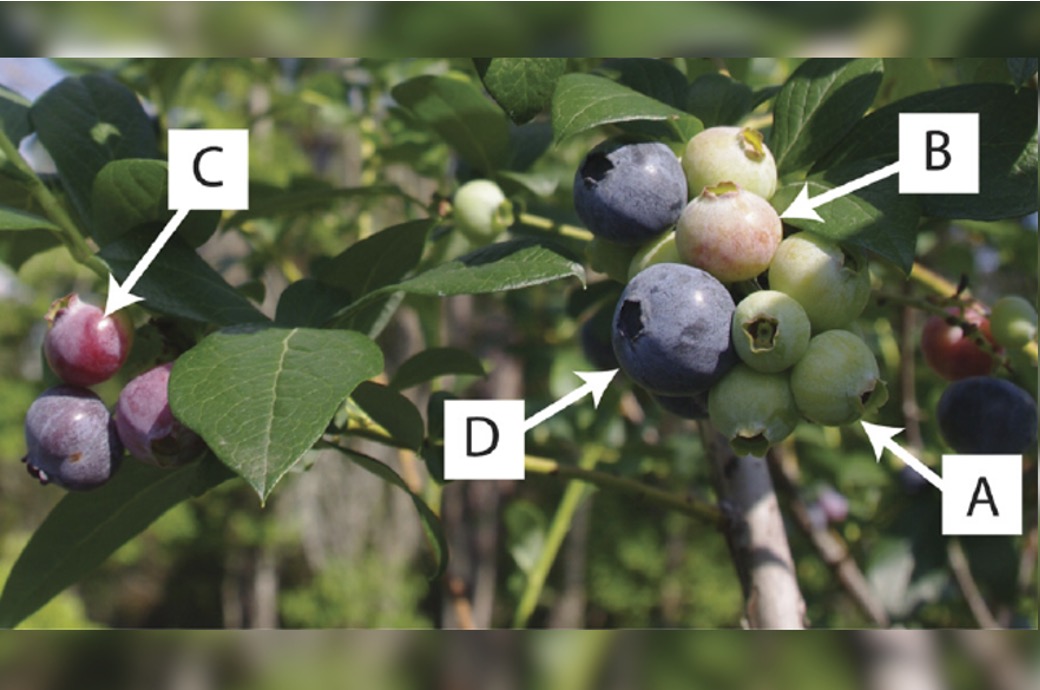
Jessica Lilia Gilbert
When it comes to avoiding overripe fruit, common sense will be your greatest guide. Overripe berries are normally found towards the bottom or corners of the container. They may look crumpled, their skin may appear to be leaking, and in the worst cases, they may have fuzzy mold on them.
Potato Protocol
Potatoes are one of the most difficult vegetables to peel, particularly if you don’t have a potato peeler and must improvise with a knife. That means you’ll only be able to cut off small chunks of skin at a time, making the procedure excessively time-consuming.
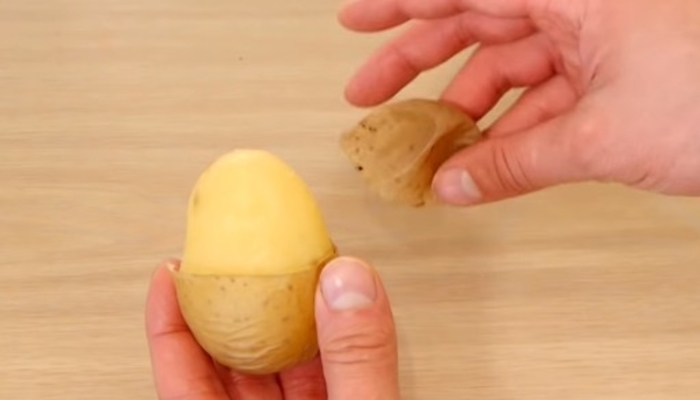
Image credit: DaveHax
Thanks to this innovative trick, you can get rid of the peeler right away. All you have to do before boiling is slice the skin around the middle of the potato without cutting right into the potato. You’ll be able to squeeze the peel right off after the potato has been boiled.
De-Shelling Garlic
Garlic peeling can be especially aggravating because the flaky parts like to fly all over the place. One of the most common go-to strategies for avoiding the mess is to throw each bulb into a jar or a box and shake it like it’s serious business. Voilà – they’re either partially or entirely de-shelled now!
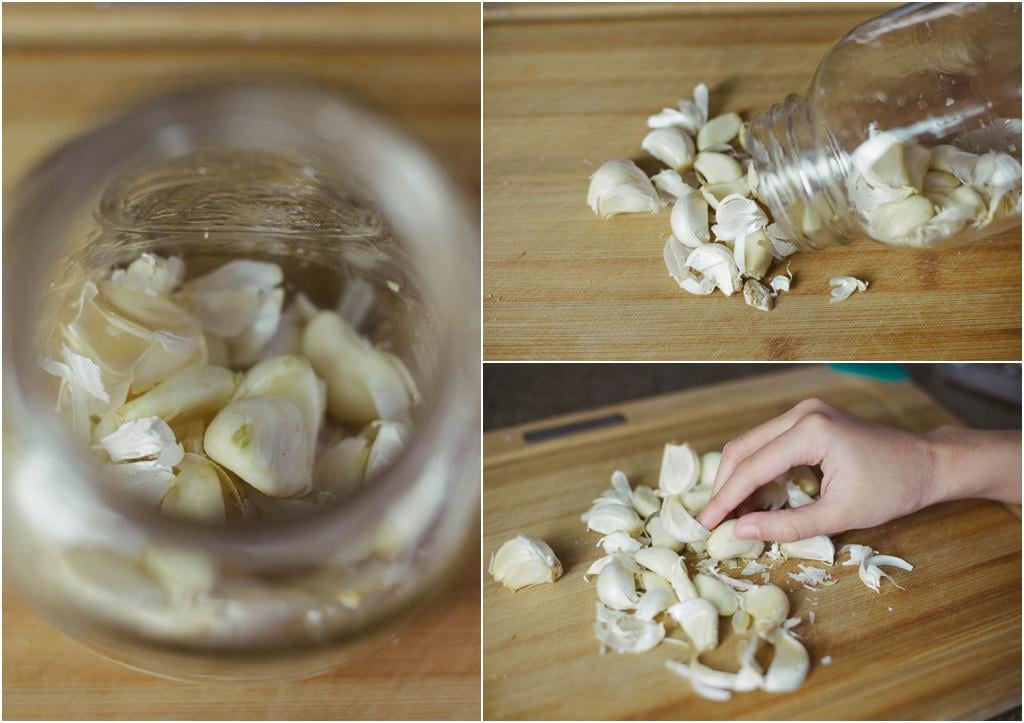
Arbuz.com
However, a fresh hack recently made headlines around the world. You don’t even have to remove each bulb from the stem; simply cut straight through the clove with your knife and pull it out.
"X" Marks The Spot With Tomatoes
If you want to make marinara and other sauces, you’ll need to remove the skin from your tomatoes. You’ll never get that smooth, decadent texture if you leave the skins on, and they also give sauces a hint of bitterness, which you don’t want as an aftertaste. Getting rid of the skin is essential, but how do you do it?
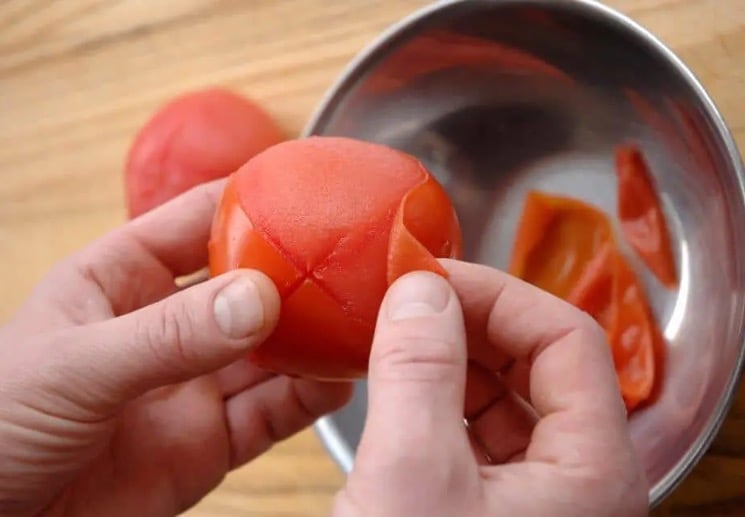
Chefspencil.com
The “hot and cold water” method is a straightforward way to neatly, thoroughly, and rapidly remove tomato skins. Cut an X in one end of the tomato and toss it into boiling water. Once it’s cooked, chill it in an ice bath before peeling the skin off. It should come away with ease.
How To Eat Rambutans
It’s not easy to eat rambutans. When you break apart the hairy shell, you don’t just get the debris caught under your fingernails – you’re often also greeted with a spray of rambutan juice to the face!
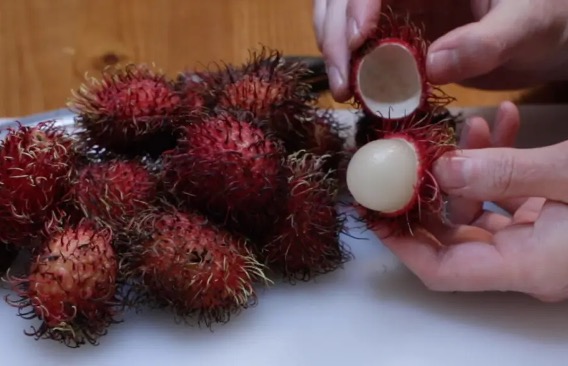
Inthekitchenwithmatt.com
Instead, the next time you’re enjoying this delicious fruit, squeeze and twist. Tighten your grip on the rambutan and twist the top half off with your other hand, just like a bottle cap. You’ll need to place your hands so that each of them is responsible for half of the fruit.
Slicing Bell Peppers
Here’s a quick and easy way to cut bell peppers without making a mess. Slice the pepper’s stem then place the veggie upside down with the bottom facing upwards. Now make four slices into the bell pepper, following its natural lines. Lastly, use your hands to help split the pepper open like a flower to reveal the center. You can now remove the white centerpiece and seeds.
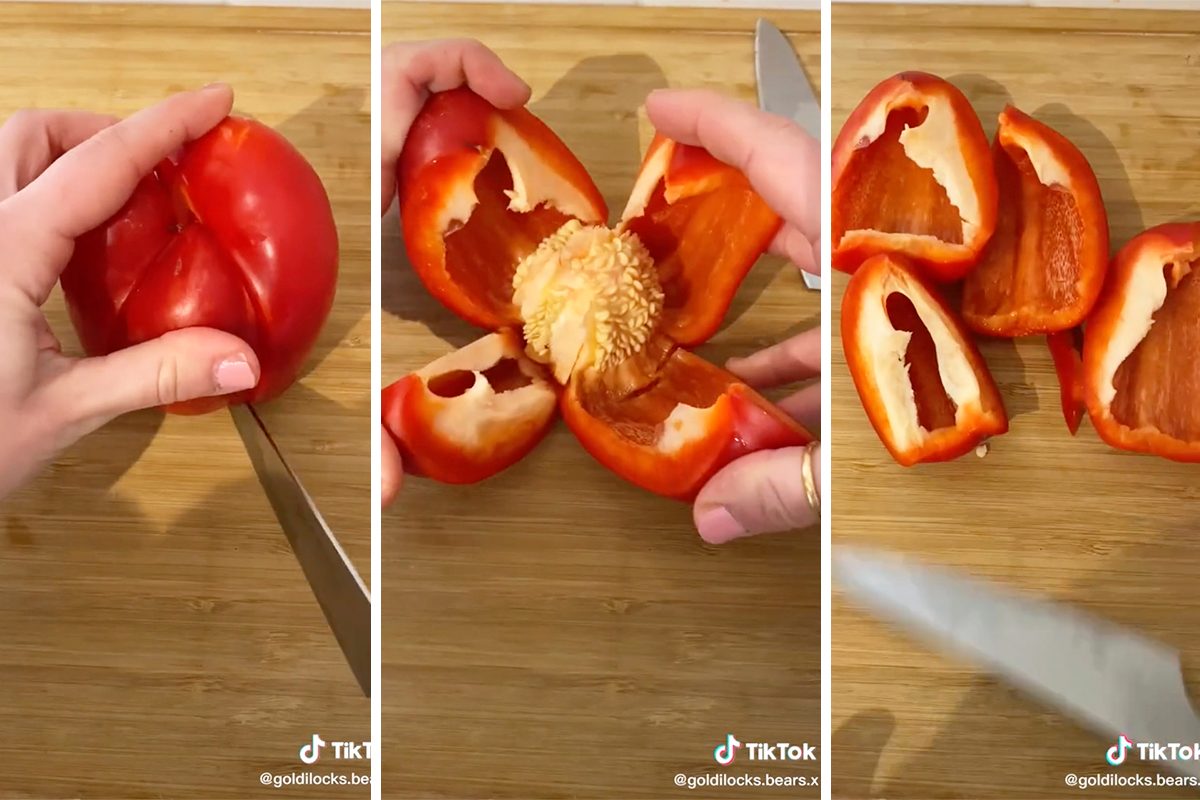
GOLDILOCKS.BEARS.X/TIKTOK
All of these components can be composted. You now have a healthy, ready-to-eat vegetable! The bell pepper can then be chopped into strips or any other form you like. All that’s left is to figure out how to eat it.
Preserving Your Strawberries
Whenever you put a bunch of strawberries in the fridge, they don’t survive long. Almost all berries carry mold spores, which is an issue. If you don’t want your berries to spoil, use this recipe to remove mold spores and extend their shelf life!
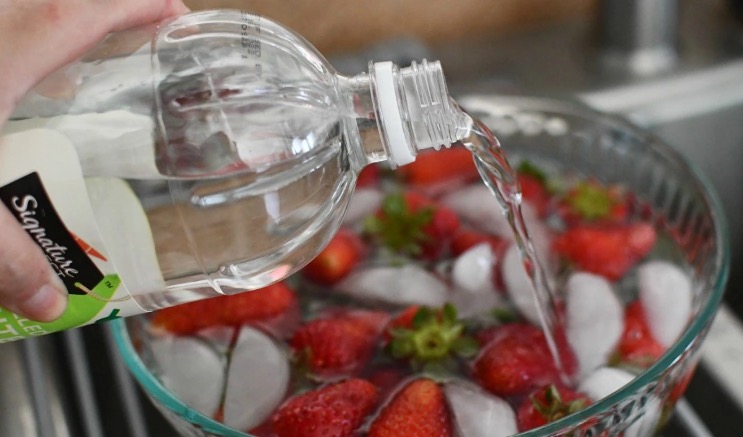
Mix one gallon of cool water with one tablespoon of white vinegar. Soak the berries for ten minutes and wash thoroughly after. Paper towels should be used to dry the berries fully before storing them in a glass or plastic container with no seal.
Turn Your Pineapples Upside Down
In addition to being readily available in any grocery store, pineapple is also a staple in many households around the world. Did you know that pineapples contain natural sugars that gather at the bottom of the fruit?
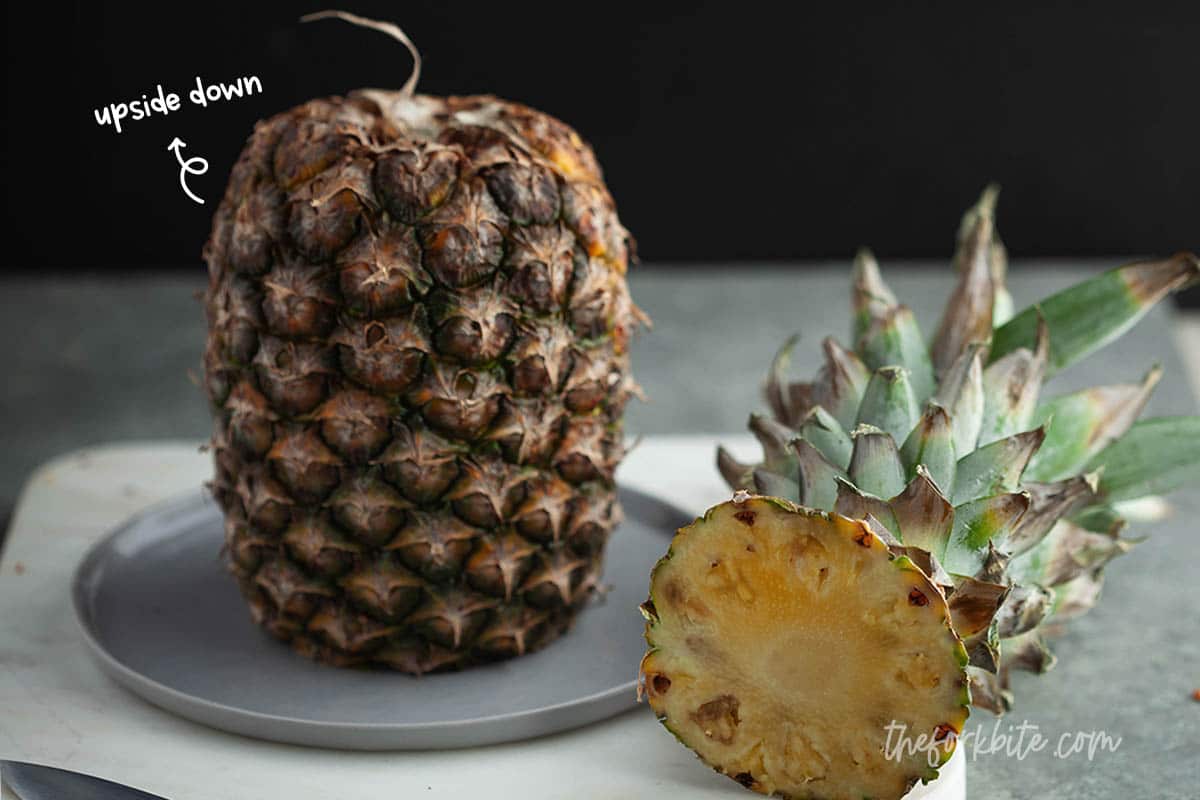
Theforkbite.com
That’s why your mother used to slice the leaves and keep the pineapple upside-down for an hour before feeding it to the family. As a result, the sugars in the pineapple are evenly distributed throughout the fruit, and you get to enjoy sweet, juicy pineapple.
Use a Whisk or Mixer Attachment on Kiwis
Kiwis are little fruits with an abundance of flavor and plenty of health advantages to match. Their sweet and tart green flesh is delicious. They also contain a lot of fiber and are high in antioxidants. The last thing any kiwi fan wants to see is the most delicious section of the kiwi clinging to the skin.
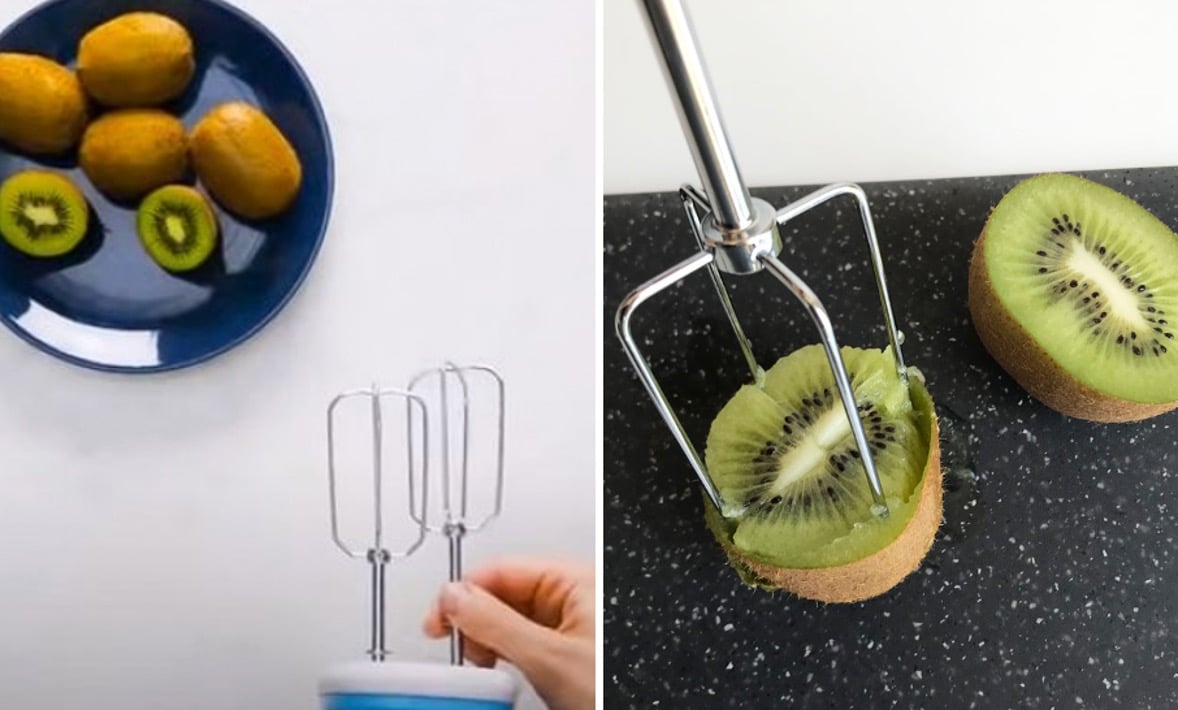
Nicovideo.jp
Though the skin is thin, scraping efforts are futile because it’s surprisingly tough (and furry). Try this kiwi tip for peeling your favorite fruit next time: Cut the kiwi in half and place a hand mixer attachment in the center. Then, all you need to do is twist and pull!
What to Do With A Watermelon
Here’s a serving suggestion for watermelons. Make a one-inch-wide cut all the way down to the rind with a broad, sharp knife held at an angle parallel to one side of a watermelon wedge. Continue making one-inch intervals of parallel cuts at the same angle until you reach the bottom.
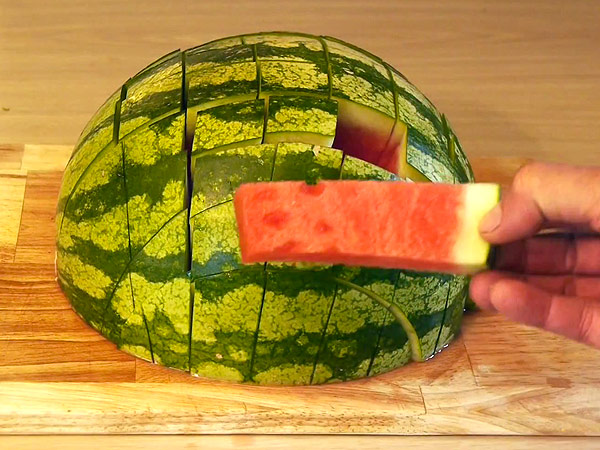
People.com
Make the same slashes on the opposite side of the watermelon wedge after rotating it. Make vertical slashes at one-inch intervals down to the rind, turning the watermelon, so the long side is facing you. Fill a bowl halfway with the cubes and serve.
Sweeten Up Your Mangoes
Mangoes are delicious, luscious fruits with a variety of health benefits. They are well-liked all throughout the world. The already luscious mango can be sweetened even more using this mango hack.
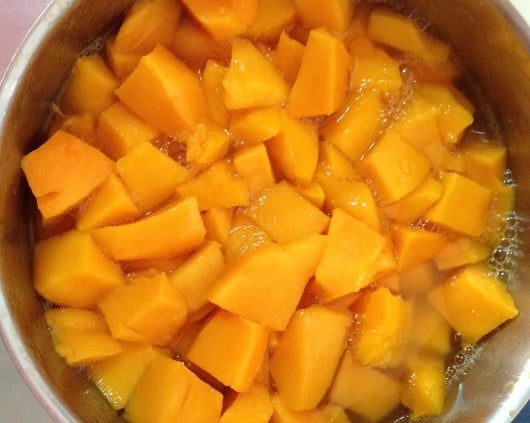
guides.brit.co
Place the mango in warm water for no more than 10 minutes if it has a tart flavor. In no time, the mango’s carbohydrates will turn to sugar. Remember to remove it after 10 minutes – even a few extra minutes will cause your prized mangoes to shrivel.
Use A Corkscrew On A Coconut
Look for the coconut’s three circles, or “eyes.” As if you were opening a bottle of wine, put a corkscrew into one of the eyeballs. Twist the corkscrew into the coconut completely. When it pierces all the way through, you will be able to feel and hear the pop.
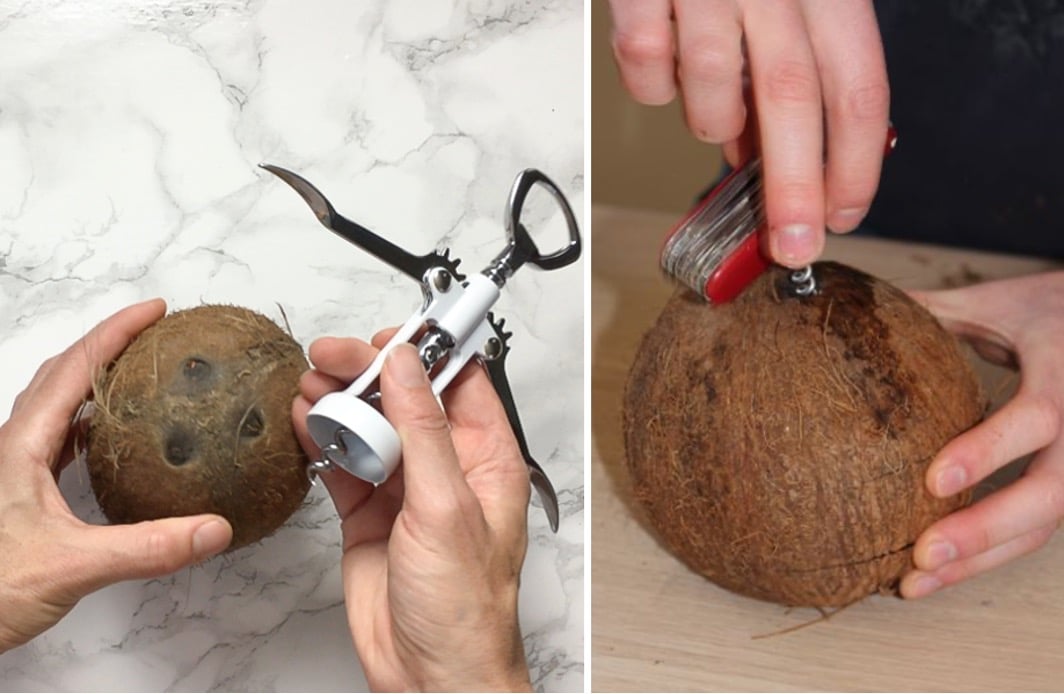
Teaspoonofspice/ Today-wedid
Unscrew the corkscrew and repeat with the other eye. Only two of the eyeballs are usually easy to pierce. Drain the water by turning the coconut upside down over a glass or bowl. Then enjoy your fresh and natural coconut water!
How To Eat Dragon Fruit
Although dragon fruit has an exotic appearance, its flavors are similar to those of other fruits. Its flavor has been described as a mildly sweet kiwi-pear hybrid. Here’s how to consume the fruit in the best possible way.
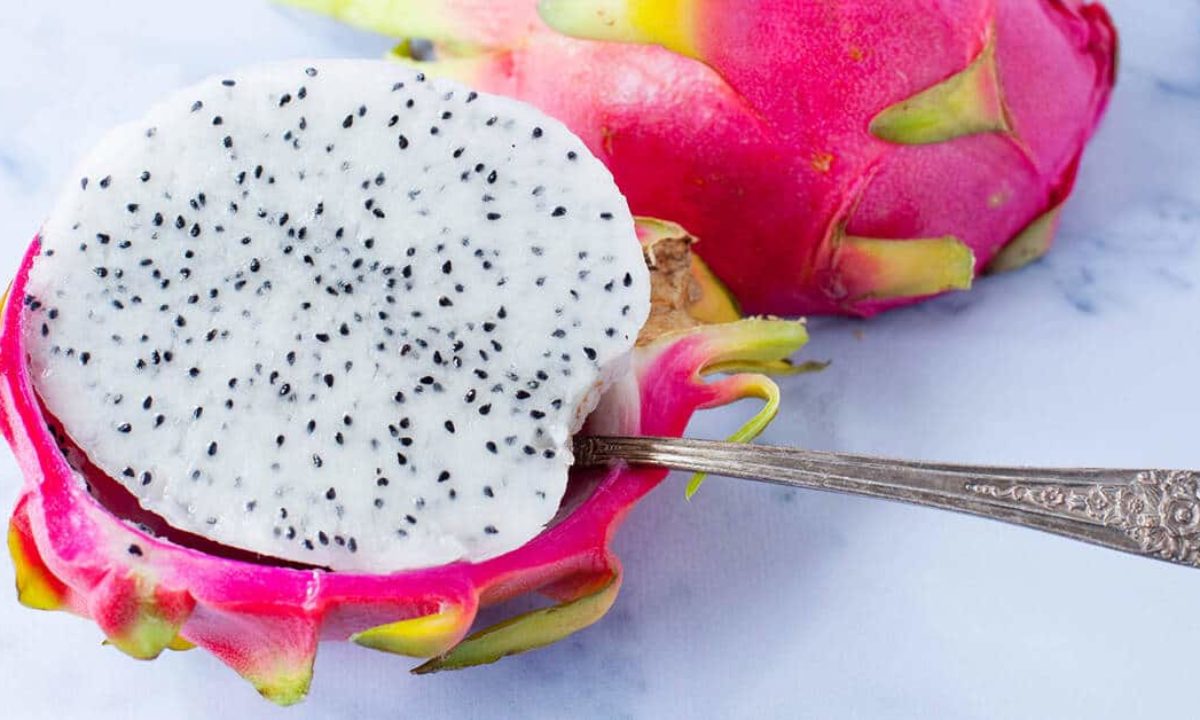
Charamarie.com
Choose a mature fruit with a bright red, evenly colored skin that yields slightly when pressed. Cut it in half using a sharp knife. You can eat the fruit out of the skin with a spoon, or you can peel the skin off and slice the pulp into little pieces.
Slow Down How Bananas Ripen
Many banana consumers are unaware that there is a way to slow down the ripening process: plastic wrap. When you next buy a bunch of bananas, wrap a little piece of plastic wrap around the stems.
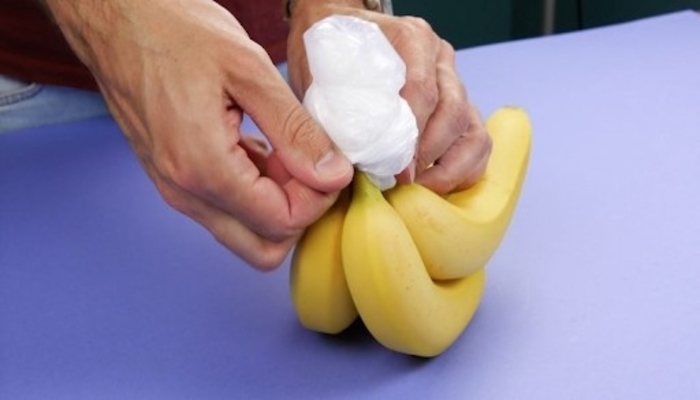
The plastic wrap helps to confine the gas bananas naturally emit as they ripen. This ethylene gas will otherwise escape the stems and spread to other sections of the fruit, speeding up the ripening process. The plastic wrap strategy slows the process, preserving bananas and preventing them from going to waste.
Use Your Lemons For Cleaning
Lemon makes cleaning at home easy. To brighten dull cookware, cut a lemon in half and wipe the cut side all over the inside and outside on your pots and pans. Rinse it thoroughly and then buff it with a soft cloth.
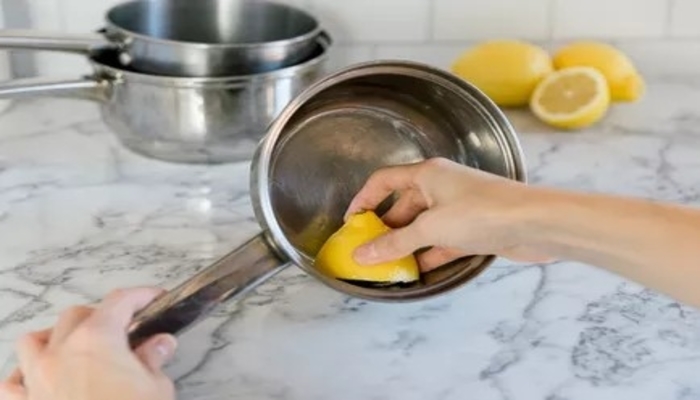
The Spruce / Ana Cadena
Keep the rind to use on chrome faucets and cabinet hardware. After rubbing the rind on the metal, rinse with cool water and dry with a soft cloth. To polish stainless steel or copper pans, cut a lemon in half and dip it in salt.
You've Been Peeling Carrots Wrong
If you’re like most people, you scrape the carrot with a vegetable peeler, starting at the thick root and proceeding quickly to the point, twisting the carrot as you go. However, there is a technique that only a few people are aware of, and as a bonus, it is faster than the tried-and-tested way.
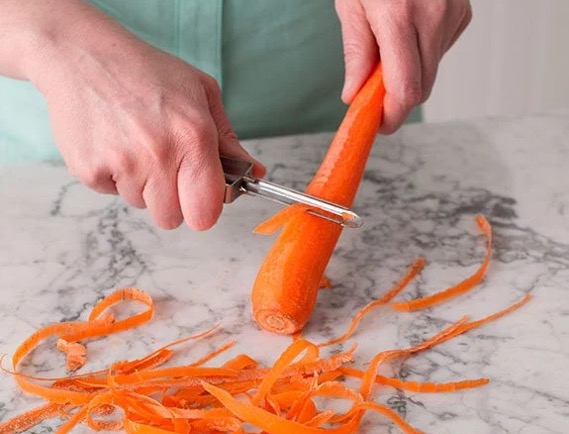
Tasteofhome.com
Run the peeler down the carrot from the base to the tip, but instead of turning the carrot and repeating the process, simply rotate the carrot and run it back without removing the peeler from the vegetable. It’s all one continuous motion.
Preparing Parsley
It’s a breeze to de-stem parsley. The job can be done with either a colander or a fork. Simply feed the parsley stems through the holes in the colander. You may even gather the leaves in a colander, rinsing and straining them once they’re all plucked. The best part about this tactic is that you’ll have all the leaves sitting in the colander when you’re done, ready to be rinsed.
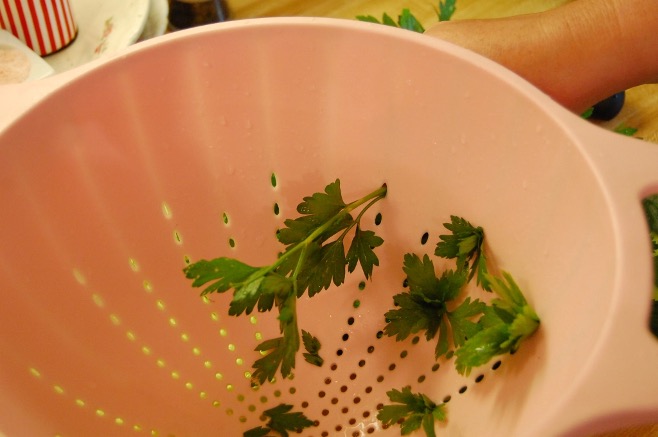
Arthurizedhome.com
If you don’t have a colander, a fork will do the trick. Holding the stems securely, separate them from the leaves with the tines of the fork. You’re done with your garnish.
Onions Can Fight Odors
Getting rid of household odors can be a pain, but who’d have believed you could add fresh onion to your arsenal of odor-fighting weapons? You can use onion to get rid of the smell of musty cellars, freshly painted rooms, and even stinky shoes.
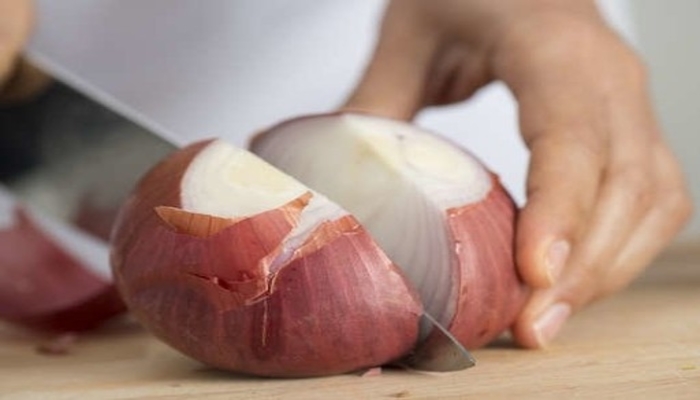
Techworld.com
Cut an onion and set one half in a shallow bowl. Use both halves for a wider space. Place your bowl in the room with the troublesome odor. The scents will be absorbed by the cut onion, but the onion will not lend its scent to the room – perfect!
Cucumber Cures
Cucumber juice has a cooling impact that helps skin appear refreshed. Cucumbers are high in folic acid and vitamin C, which can “wake up” your skin and drive new cell growth. Folic acid boosts antioxidants that help your skin battle the toxins that make your eyes puff up.

Weddingsalon.com
One of the most well-known beauty cures is to place cucumbers over your eyes to remove dark circles and puffy skin. Keep cucumbers cold in the refrigerator at all times, so you can use this hack whenever the need arises.
Chopping Broccoli Without The Mess
Broccoli is a versatile vegetable that can be used in a variety of meals, but it can be a pain to prepare. It’s a well-known fact that while slicing raw broccoli, particles tend to break off and fly all over the place. It isn’t a world-ending issue, but it is inconvenient.
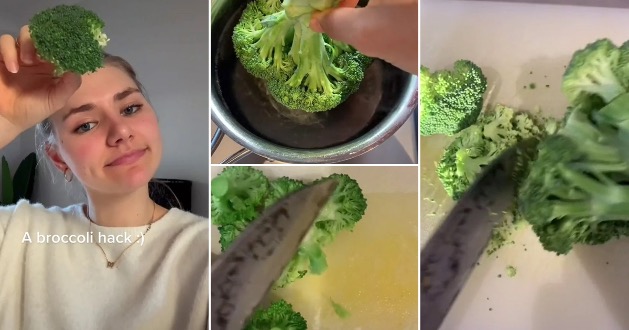
monmackfood/ TikTok
To prevent this, place your broccoli head in a cup or pan of hot water for a few seconds. The broccoli fragments will stay together after this, giving you a smoother cut and a clean chopping board.
Don't Store Your Eggplants With Other Fruits
Eggplant prefers to be stored in a cool, dry location at room temperature, such as a climate-controlled pantry. You can also put your eggplant in a basket, dry paper bag, or a plate to keep it fresh. You should not store your eggplant in a fully closed plastic bag or container.
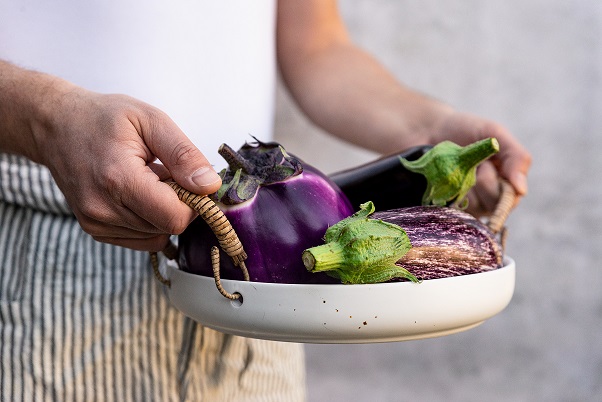
Lovemysalad.com
You should also give your eggplant its own space. Because of a gas called ethylene produced by some fruits and vegetables, storing it near other fruits can cause it to go from ripe to overripe to spoiled in a matter of hours.
Simple Sweet Potatoes
Most sweet potatoes are recommended to be roasted in the oven to make peeling easier. Poke holes in the uncooked sweet potatoes with a fork, then bake for 45 to 50 minutes at 425 degrees, or until very soft.
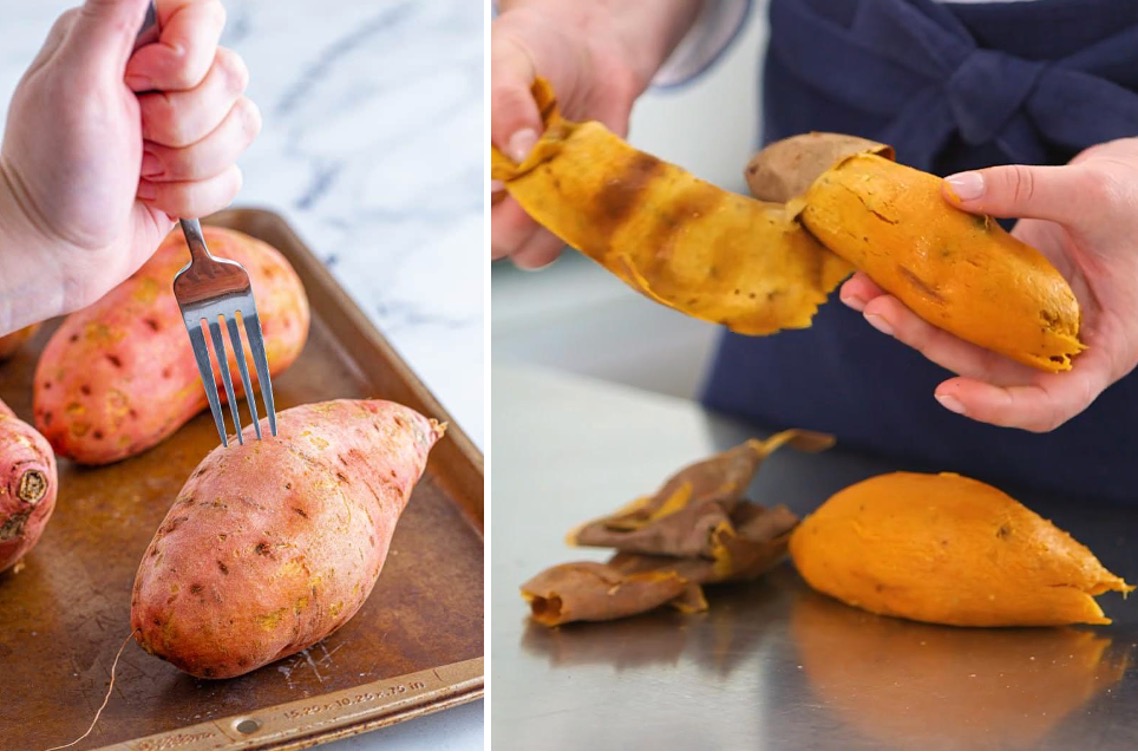
Peel the skin from the potatoes once they have cooled enough to handle. The skin will miraculously peel away. You’ll be left with nothing but creamy sweet potato packed with delicious flavor. If you don’t have a peeler and need to bake for a large group, try this quick and easy method.
Chopping Cauliflower
Chopping a cauliflower can be difficult. However, with this simple procedure, it might just become your new favorite vegetable. Cauliflower is a fantastic addition to your family’s diet because of its high fiber, potassium, and Vitamin C content.
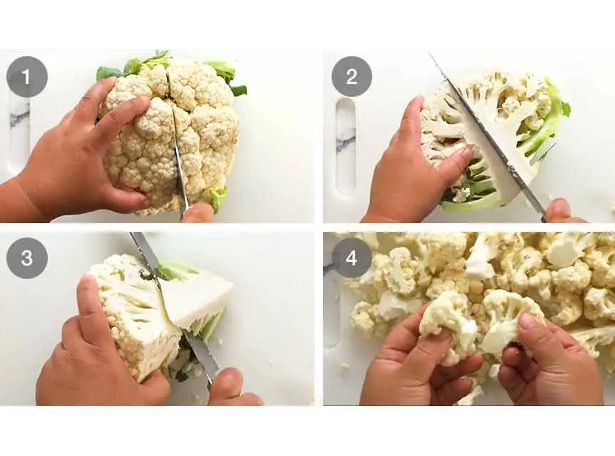
Recipetineats.com
Remove the leaves first, then cut the stem off. Cut the cauliflower in half after standing it up. Now here’s the main trick: Using a knife, cut the pieces in two. This makes removing the core quite simple. Each cauliflower quarter should have the core removed. Using your hands or a knife, separate the florets.
Storing Spinach
Here’s how to keep spinach fresh for a long time. To absorb excess water, gently wrap fresh spinach with a paper towel. Moisture accelerates the degradation process, so you must minimize the moisture. Place the spinach in a storage container or bag that has been wrapped in paper towels.
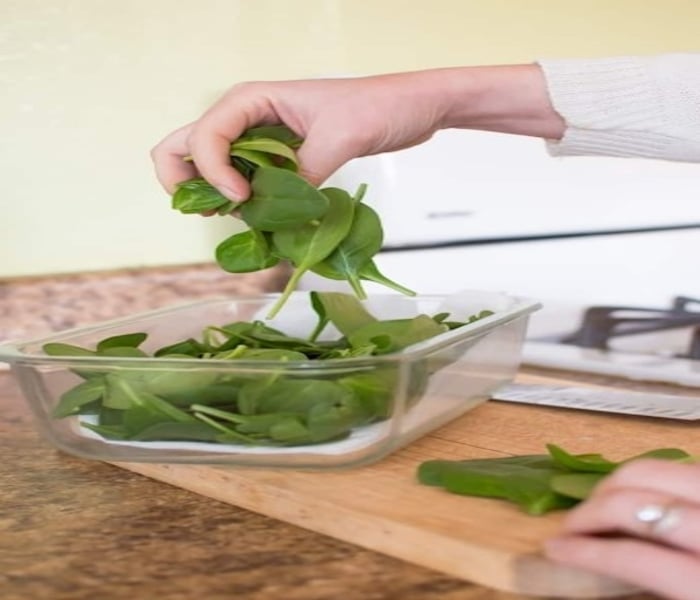
Tightly close the container. Refrigerate the spinach for up to ten days in the crisper drawer. If you’re not storing your spinach in an airtight container, keep it away from ethylene-producing fruits. When your spinach is exposed to ethylene gas, it will spoil faster.
Use A Bundt Pan For Cutting Corn
Here’s how to cut corn off the cob without making a mess! Place the corn cob on a bundt pan’s elevated middle. The corn kernels will be caught by the sloped sides of the pan as you cut it! Insert the corn cob’s tip into the hole in the center of the pan to keep it steady.
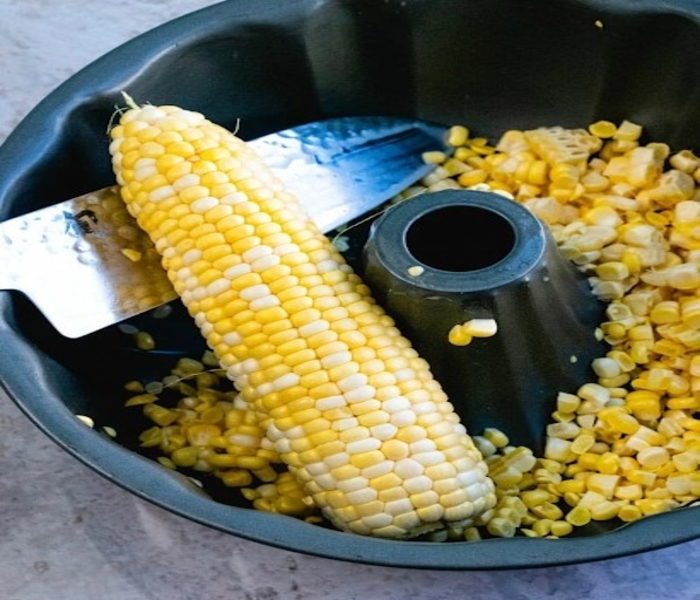
With your non-cutting hand, secure the bottom of the corn cob. Cut in a downward motion with a large chef’s knife, allowing the corn cobs kernels to settle nicely in the bundt pan.
Grape Expectations
Upon arriving at your destination with a fresh container of grapes, you may be tempted to rinse them right away. Resist the temptation. Moisture should be avoided until the moment the grapes are to be consumed because any excess moisture will speed up the decaying process and cause the fruit to rot.
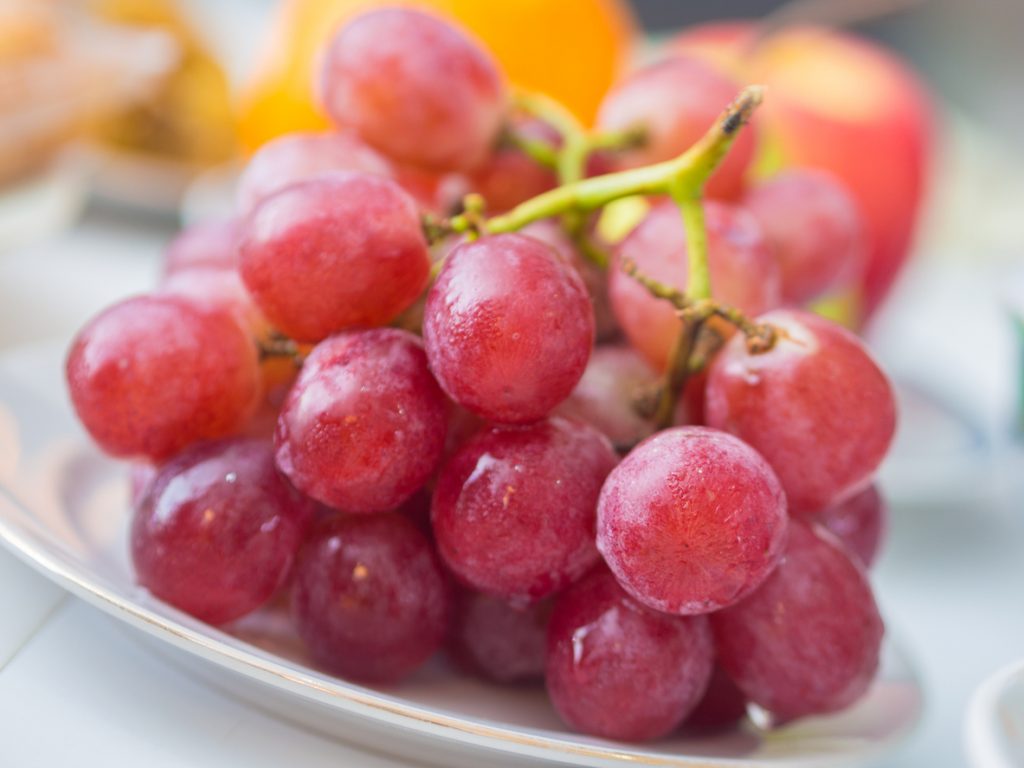
Healthymummy.com
Your fridge is the ideal place to store grapes that are still fresh. Temperatures between 30-32 degrees Fahrenheit and 90-95 percent humidity are ideal, so don’t hesitate to toss them in the back of your crisper drawer.
When Are Limes Ripe?
When the hue of a lime changes from dark green to light green or yellow, depending on the variety, it is ripe. Feel the texture of the skin with your finger. Ripe limes have a smooth rather than a rough surface. Overripe fruit has wrinkled, rough skin.
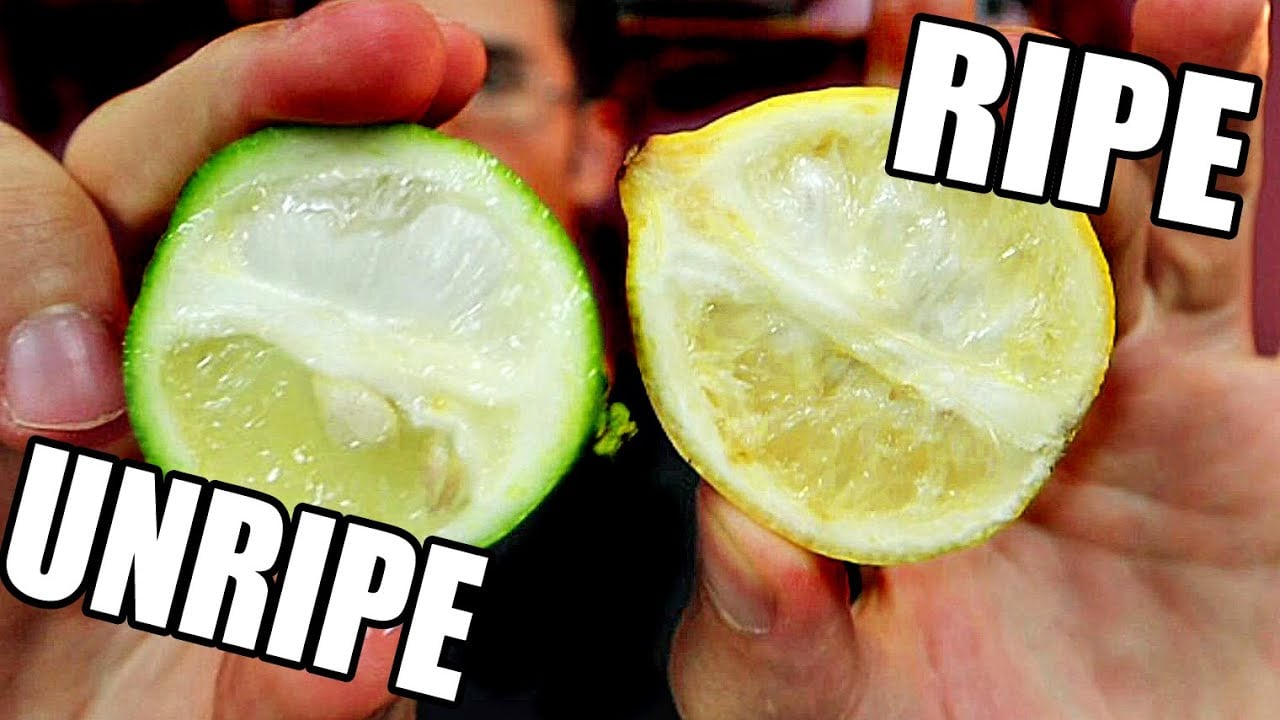
YouTube
In your palm, squeeze the limes. When pressed gently, ripe limes give slightly. Limes that are still hard aren’t ripe enough to be juicy. It’s ready to eat if the lime feels weighty for its size. The fruit inside will taste fresh and tart.
Pristine Pears
Blanching slices of pear will usually keep them from browning. Heat your fruit just long enough to deactivate the enzymes, then remove from the heat to stop the cooking.
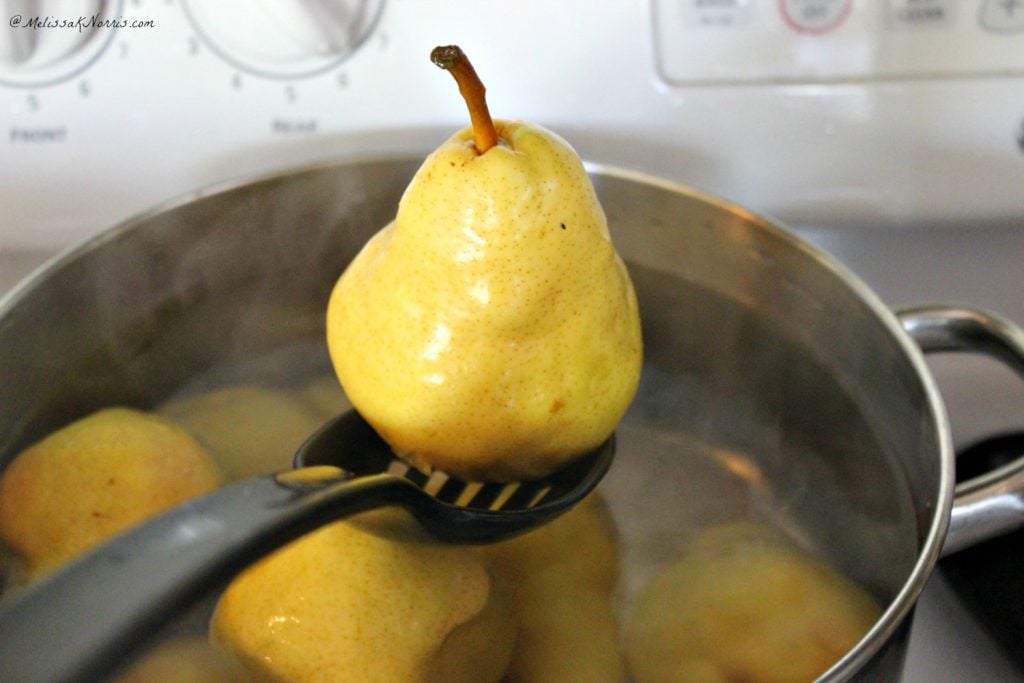
Melissaknorris.com
To perfect this process, fill a pot halfway with water and bring it to a boil. To minimize the enzymatic juice, add the pears and let them simmer for 40-50 seconds. To stop the cooking process, drain the pears and immerse them in ice-cold water. Drain the excess water in a sieve.
Slicing Zucchini
To begin, thoroughly wash the zucchini. Cut both ends off. If your zucchini is large, you can cut it in half. After that, vertically slice each half again. Place the seeds in a basin after scooping them out with a spoon.
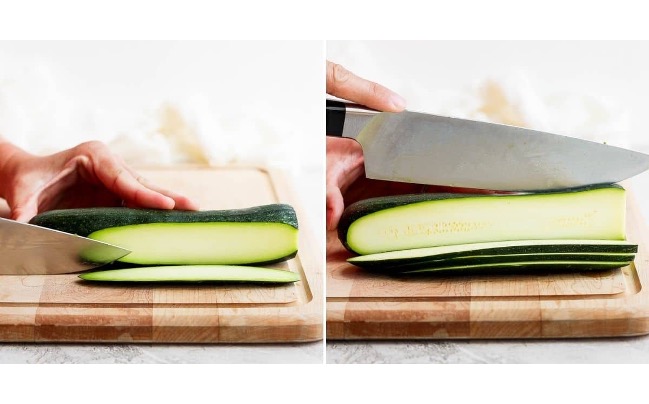
Feelgoodfoodie.net
Using a cheese grater or a food processor, shred the remaining pieces. Once the zucchini has been shredded, place it on a paper towel to absorb any excess moisture. Place another paper towel on top, and pat until the water is completely absorbed.
Opening Your Mangosteen
Hold your mangosteen on its side and cut it open with a serrated knife. Mangosteen skin becomes harder as it ages. Cut a shallow opening all the way around the circumference, around 1/4 to 1/3 inch deep, just enough for your fingers to get in.
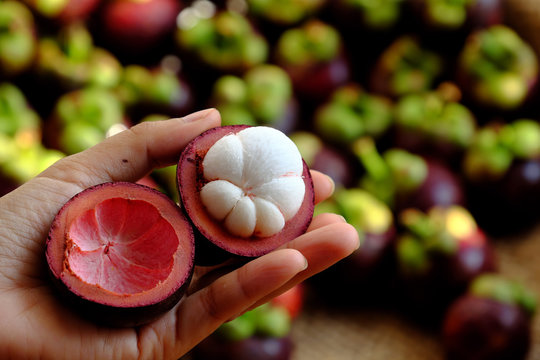
Adobe Stock
If you don’t have a knife, squeeze the mangosteen between your palms to crush the purple shell. You should be able to pull the shell off once it has been cracked. Just keep in mind that this method is more clumsy.
